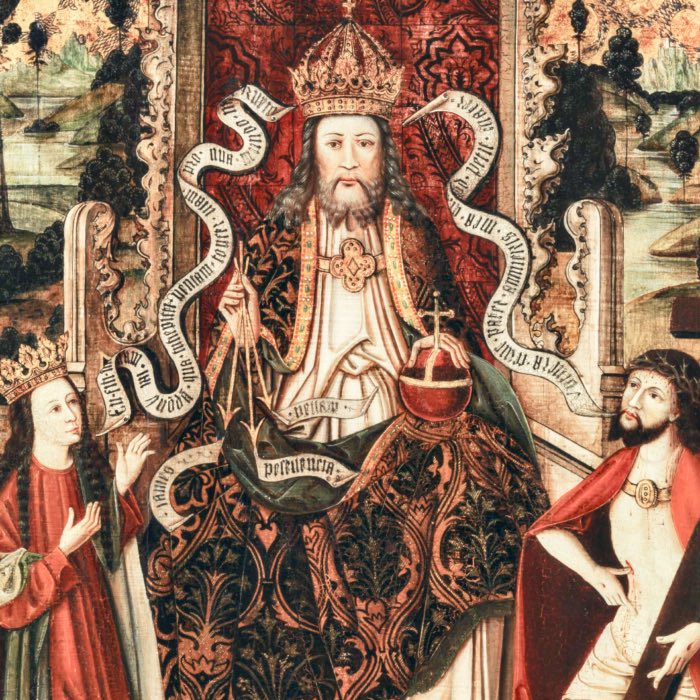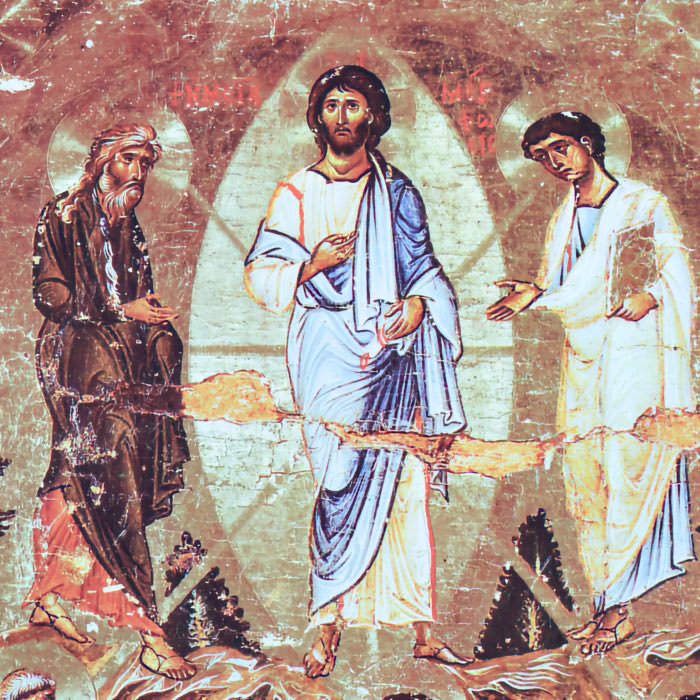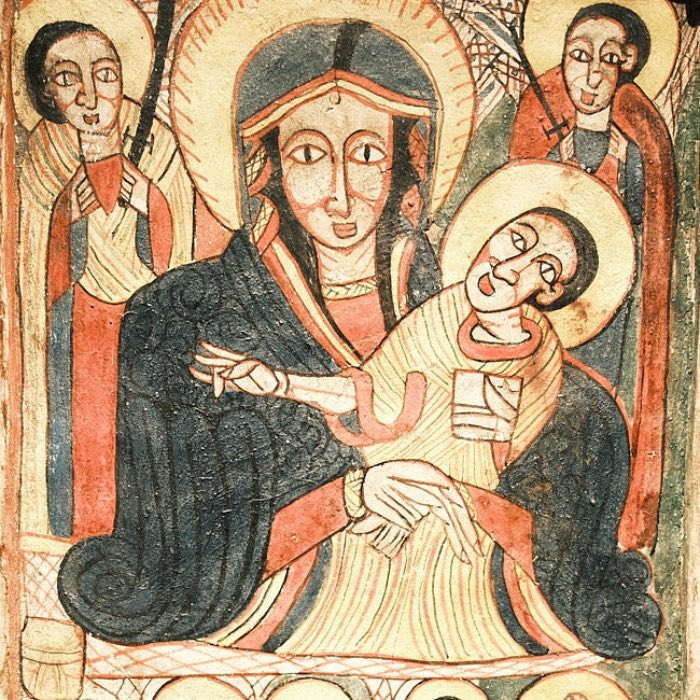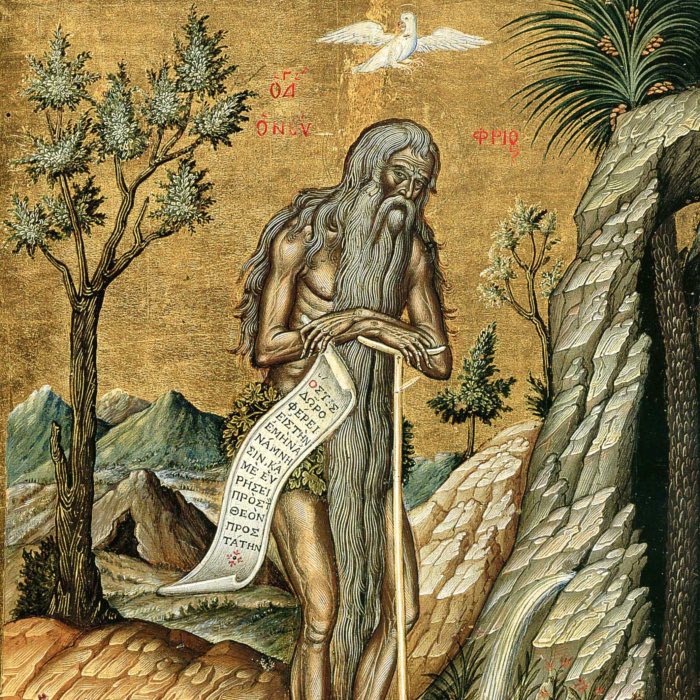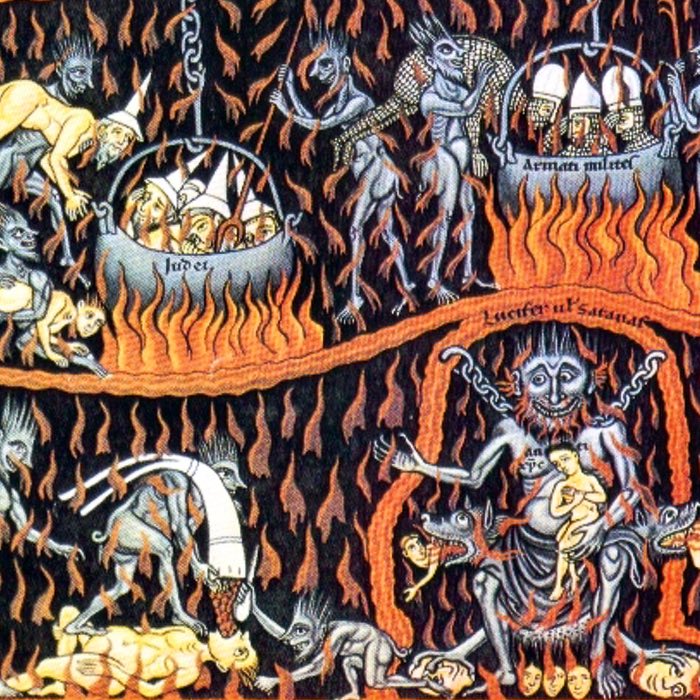Weekend Stories
I enjoy going exploring on weekends (mostly). Here is a collection of stories and photos I gather along the way. All posts are CC BY-NC-SA licensed unless otherwise stated. Feel free to share, remix, and adapt the content as long as you give appropriate credit and distribute your contributions under the same license.
diary · tags · RSS · Mastodon · flickr · simple view · grid view · page 5/36
From YHWH to God: How Greek philosophy shaped Jewish and Christian perception of the Absolute
The transformation of the concept of God in both Judaism and Christianity is one of the most profound developments in religious history. From the anthropomorphic and personal YHWH of the Hebrew Bible to the abstract, infinite, and ineffable deity central to Christian theology and later Rabbinic Judaism, this evolution was heavily influenced by Greek philosophy. Particularly during the Hellenistic period and beyond, ideas from Platonism, Stoicism, and Neoplatonism provided a conceptual framework that reshaped the understanding of divinity in both traditions. In this post, we explore how Greek philosophical thought transformed the perception of God in Judaism and Christianity, with emphasis on their shared roots and divergent developments.
Theosis: An alternative view of hell, evil, and salvation in Eastern Orthodoxy
Eastern Orthodox Christianity presents a unique theological perspective that diverges in significant ways from Western Christian traditions. Among these differences are the understanding of hell, evil, and the ultimate purpose of human life. While the Western Church often conceptualizes hell as a place of punitive suffering and views salvation as a juridical resolution to sin, Eastern Orthodoxy frames these ideas within a more relational and mystical context, emphasizing theosis — the union of humanity with the divine. In this post, we explore these theological differences by focusing on the Orthodox views of hell, evil, and the concept of theosis as an transformative process.
The Ethiopian Orthodox Tewahedo Church
The Ethiopian Orthodox Tewahedo Church is one of the oldest Christian traditions in the world, with roots that trace back to the early centuries of Christianity. As the largest of the Oriental Orthodox Churches, it has played a pivotal role in the religious, cultural, and political life of Ethiopia. Its rich liturgical traditions, distinctive theological perspectives, and unique history reflect a deeply embedded Christian heritage shaped by both local and global influences. When I recently visited Frankfurt, I had the opportunity to explore an exhibition in the Icon Museum showcasing the artistic and spiritual treasures of the Ethiopian Orthodox Tewahedo Church. I thought, therefore, it would be fitting to write about the history and significance of this ancient Christian tradition, also as an example of the vast diversity within early Christianity.
Shestodnev icons: The six-day work of God
The Shestodnev (Six-Day) icon emerged in the late 15th century, embodying a theological synthesis of the biblical narrative of creation and the liturgical rhythms of Christian worship. Its development coincided with the eschatological concerns of the era, particularly as the year 1492 – believed to mark 7,000 years since the creation of the world – drew near. At this time, many Christians sought to comprehend not only their personal salvation but also the divine economy guiding humanity and the Church’s role within it. The Shestodnev icon became a visual testament to these inquiries, combining symbolic representations of Genesis, sacred history, and the liturgical week.
Isaak Demetrakes’ Heavenly and Earthly Jerusalem: A masterpiece of orthodox iconography
The Heavenly and Earthly Jerusalem Icon, attributed to Isaak Demetrakes and housed in the Ikonenmuseum Frankfurt, is a remarkable and intricate representation of Christian eschatology and salvation history. With its detailed visual theology, it stands for the the power of iconography in Orthodox Christianity to convey complex narratives. In this post, we will take a detailed look at the icon’s structure and try to understand its theological and artistic significance.
The role of icons in Orthodox believes
Orthodox icons, derived from the Greek word eikṓn meaning ‘image’ or ‘likeness’, play a foundational role in the faith, theology, and worship of the Eastern Orthodox Church. Far from being decorative objects, icons are viewed as sacred tools of devotion, offering believers a tangible connection to the divine. Often described as ‘windows to heaven’, icons serve as both theological affirmations and personal aids in spiritual practice. Their rich history, theological significance, and symbolic artistry distinguish them from other forms of Christian art, underscoring their profound role in Orthodox beliefs. I recently visited the Icon Museum in Frankfurt, where I had the opportunity to explore and appreciate original Orthodox icons.
Desert Fathers and the beginnings of Christian monasticism
The Desert Fathers were early Christian hermits and ascetics who sought to withdraw from society to live a life devoted to prayer, contemplation, and spiritual discipline. Emerging in the 3rd century CE, primarily in the deserts of Egypt, Palestine, and Syria, these individuals laid the foundations for Christian monasticism. Their pursuit of a deeper spiritual connection through solitude and meditation mirrors practices found in Buddhist monastic traditions, which also emphasize inner transformation through disciplined contemplation.
The historical oppression of women in Christianity
The oppression of women in Christian history has roots that intertwine with theological interpretations, ecclesiastical structures, and the cultural contexts in which Christianity developed. While Christianity emerged in a patriarchal society, its teachings and institutions have historically codified and perpetuated gender inequality. In this post, we briefly explore the origins of this oppression.
Homosexuality in Christian history: Persecution and moral condemnation
Throughout history, the Christian Church has played a significant role in shaping societal attitudes toward sexuality, including homosexuality. The Church’s stance on homosexuality has evolved over time, influenced by theological interpretations, cultural contexts, and legal frameworks. This article explores the historical relationship between the Church and homosexuality, examining key events, doctrines, and societal impacts from early Christianity to the modern era.
The concept of hell and its instrumentalization by the Church
The concept of hell occupies a central place in the theological framework of Christianity, functioning as the ultimate consequence of moral failure and estrangement from God. However, the nature and interpretation of hell have undergone significant transformations throughout history. Initially rooted in Jewish and Greco-Roman traditions, the Christian notion of hell evolved into a doctrine deeply entwined with institutional power. By the medieval period, the Church had effectively weaponized the fear of hell to consolidate authority, shape social behavior, and control its adherents. In this post, we trace the evolution of the concept of hell within Christianity, examine its role as a tool of manipulation by the Church, and explore the profound psychological and social consequences it had on believers, particularly in the context of excommunication.
